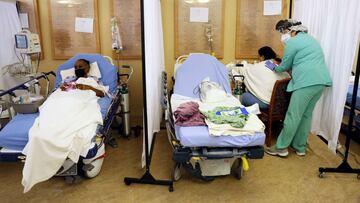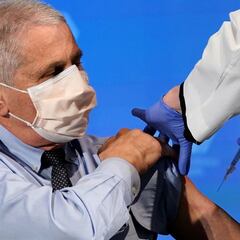Research reveals possible lasting immunity after covid-19 infection
The length of time individuals retain immunity from covid-19 comes after a study by Australian scientists, published in the journal 'Science Immunology'.

One of the great unknowns about the novel coronavirus that has caused the current global pandemic is just how long people remain immune after contracting the disease. Over the past several months as the virus has spread around the globe, researchers have sought a reliable answer to this question. It may be key to the development and administration of the vaccine.
There have been some reported cases of reinfection but there remains doubt to whether these were reinfections or the disease “waking up” again.
"Immunity can last at least eight months"
Australian researchers have published a study in the journal 'Science Immunology' that determines the length of time a person retains immunity after contracting covid-19 is at least eight months.
The study reports that 25 patients who were infected with covid-19 had their blood samples analyzed from the fourth day of infection to day 242 after the infection. The 36 blood samples obtained from each patient revealed that they had retained durable B cell memory to SARS-CoV-2. B cells are memory cells which “remember” a virus infection by recognizing the nucleocapsid and spike proteins (two key components SARS-CoV-2) and then trigger a protective immune response if they are re-exposed.
This conclusion is great news, as there were some previous studies that revealed immunity could be lost quickly. “Nor does it seem that reinfection is common. And if there is, in these diseases it usually occurs with milder symptoms than the original infection,” Jaime Jesús Pérez, director of the Spanish Association of Vaccination, commented to AS.
- What are the differences between Moderna and Pfizer’s vaccines?
- State-by-state guide to Christmas travel restrictions
- New covid guidelines in place for Christmas gatherings
- UK mutation: expert warns new variant could be "unstoppable"
Very few cases of possible reinfected in the world
At least one case of reinfection in Spain is being investigated. There exists the possibility that it could be a false positive or that remains of the virus were still present in the body and 'woke up' after a period of time . In the world, among the more than 78 million confirmed cases, only around twenty possible cases of reinfection have been confirmed, which are also being studied.
Related stories
In August a man from Hong Kong tested positive for a second time with covid-19 upon returning from a trip to Spain. He had contracted the disease for the first time in April and an initial analysis showed that his second infected was with a slightly different strain.
In October a woman from the Netherlands died after what was believed to be a reinfection. She was being treated for a rare cancer with a B-cell-depleting therapy when she contracted covid-19 the first time. 59 days after the start of that COVID-19 infection, she developed symptoms again. She had received chemotherapy two days prior to developing symptoms.


